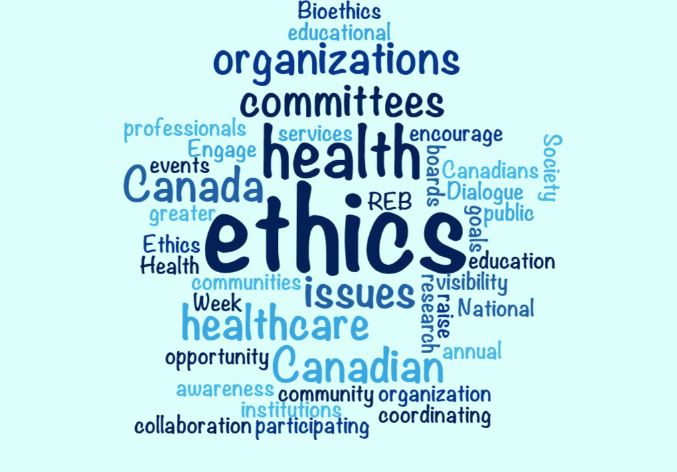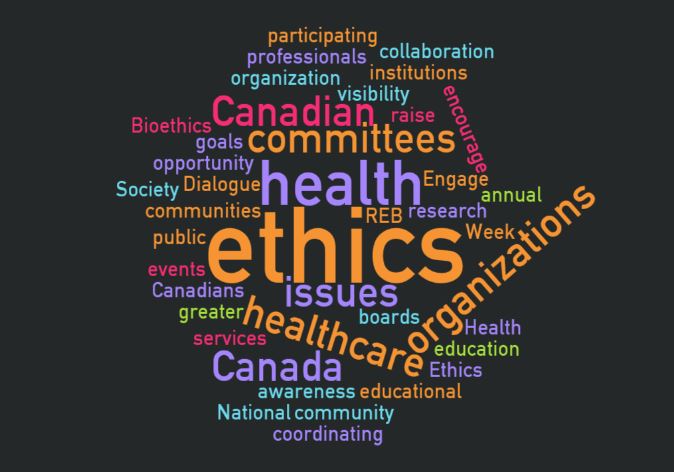This is part of a series of posts for the 2016 National Health Ethics Week (NHEW). To mark this special week, I’m writing one post a day about medical research – for patients.
I work in bioethics, also called biomedical ethics, or sometimes healthcare ethics or biomedical ethics. But I’m writing these posts this in my free time, not as part of my job. I hope this information has been helpful!
In my last post, we talked about signing forms for research projects. Now I want to talk about what comes before that. About how someone would find out about a research study. Sometimes your doctor, or nurse, will talk to you about a medical research study. This is called recruiting patients, or healthy individuals, for research.
There are many other places where you might see an advertisement for a research project. These ads can be on hospital or clinic bulletin boards, in newspapers, on television or the radio, even posted on buses or bus shelters. You might see research advertisements in magazines, or the Internet, or even on billboards. Just like ads for anything else – they can be anywhere these days!
Why talk about these ads for research projects? Because the doctors and nurses running the research projects have to follow some rules when they place ads to recruit participants. The US government’s FDA says(1) that these ads are the start of the ‘informed consent process’. That’s what we talked about in yesterday’s post.
The FDA also says(1) these ads can’t be “unduly coercive” or “promise a certainty of cure”. Coercive means getting someone to do something they don’t really want to do. This can be done in many ways. It could be a threat, or an offer of a lot of money. Can you remember any movie or TV show in which someone is asked to kill someone else?: “I’ll give you a million dollars to run over Joe”, or “If you don’t run over Billy, I’ll kill your daughter”.
Even something that seems like a good thing can be coercive. If an advertisement for a research study says that it can cure a disease, for example. Or an ad that says it can make someone live longer. Keep this saying in mind: If it seems too good to be true – it probably is!

Advertisements can be coercive in smaller ways, as well. An ad can offer more money for something than what it’s worth. For example, an ad might say that participants will receive money for being in a research study. But the only payment that’s allowed, under research rules and laws, is to reimburse participants for their time. The payment amount is usually based on the minimum wage in that geographic area, for the time a person in the study would have to miss work. For study appointments, called study visits.
There may be a few visits to the study doctor or nurse. There could forms to fill in. Questionnaires to do. Maybe some medical tests, like x-rays or scans. The research team might have to take blood samples. Some research projects will pay you for your time in the study. But if the ad says they’re paying $5,000.00 an hour, that’s coercive. It’s using money to try to get someone to do something they might not do otherwise.
And that’s not allowed in research.
If you see an ad for research, and have questions about it – ask the research team. You can ask questions about research projects. In fact it’s your right to ask questions, if you’re thinking about participating in a study. And if there’s something that you don’t understand or aren’t sure about, ask about it. Part of the job of the research team is to answer questions!
If you see a research advertisement at a clinic or hospital, you can ask to take a copy home with you – if they have any extra copies. You’re allowed to talk with your family and loved ones, before you decide to be in any research. And if you do decide to be in the study, you can stop whenever you want. But sometimes you’ll have to stop slowly.
That’s because some medications can’t be stopped all at once; they have to be tapered off, stopped gradually. For some of these medications, you could get sick if you stop all at once. Always check with a doctor or pharmacist before stopping any medication!
References:
(1) U.S. Food and Drug Administration (FDA). Recruiting Study Subjects – Information Sheet: Guidance for Institutional Review Boards and Clinical Investigators Accessed 01 Mar 2014. Web:
https://www.fda.gov/RegulatoryInformation/Guidances/ucm126428.htm

